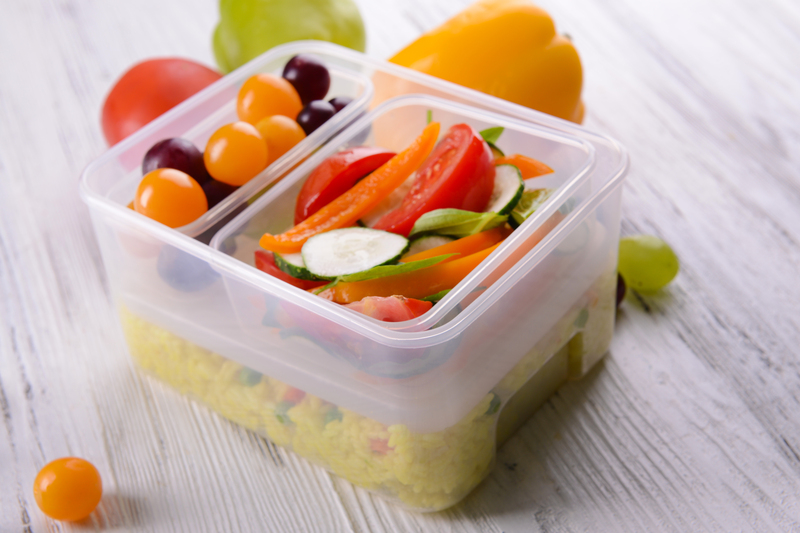Thrifty Solutions for Bulky Waste Pickup: An In-Depth Guide
Looking to clear out large, unwanted items without breaking the bank? Bulky waste pickup solutions don't have to be complicated or expensive. Whether you're moving, renovating, or simply decluttering your home, finding affordable ways to dispose of bulky items is essential for both your wallet and the environment. In this comprehensive guide, we'll explore cost-effective strategies for bulky waste collection that are friendly to the earth and your finances.
What is Considered Bulky Waste?
Bulky waste refers to large items that are too big for regular trash bins or standard curbside collection. Typically, this category includes:
- Furniture: sofas, mattresses, chairs, tables, wardrobes
- Appliances: refrigerators, washing machines, stoves
- Electronic waste: TVs, computers, printers
- Garden waste: large branches, old fencing, patio furniture
- Carpeting and rugs
- Miscellaneous large household items
Disposing of these items can be a challenge due to their size, weight, and sometimes hazardous components. Fortunately, cost-effective bulky waste removal services and DIY approaches are available.

Why Choose Thrifty and Eco-Friendly Options?
Not only can thrifty solutions for bulky waste pickup save you money, but they also help reduce landfill waste and support sustainable practices. Here's why it matters:
- Reduces landfill impact: Many bulky items can be reused, recycled, or donated rather than dumped.
- Saves money: Avoid hefty disposal fees charged by landfill sites or private haulers.
- Helps the community: Donating items can benefit families and organizations in need.
- Promotes sustainability: Recycling programs and repurposing reduce resource consumption.
1. Leverage Your Local Council or Municipal Services
Many cities and towns offer free or low-cost bulky waste collection programs for residents. Here's how you can make the most of these services:
Check Your Eligibility and Schedule
- Visit your local council's or municipality's website to see if you're eligible for curbside bulky item collection.
- Municipal pickups typically occur on set days, so mark your calendar to avoid missing your slot.
- Understand the restrictions: There may be limits on the number of items, size, or types of waste accepted at no charge.
Prepare Your Items Properly
- Schedule your pickup in advance: Slots fill up quickly, so plan ahead.
- Disassemble large furniture or appliances to save space and make pickup safer.
- Place your items in the designated area (usually curbside) no earlier than 24 hours before your collection date.
TIP: Some municipalities allow extra pickups or offer vouchers for additional collections annually. Take advantage of these for extra savings!
2. DIY Bulky Waste Drop-off Options
If you missed your scheduled pickup or need more flexible timing, consider utilizing local drop-off centers or transfer stations:
- Many recycling and waste facilities accept bulky items for little or no cost.
- Check for any residency requirements--some sites are only for city or county residents.
- Sort items beforehand: Electronics, upholstery, metals, and wood may need to be separated.
- Bring proof of residency (such as a utility bill) to avoid extra fees.
*Tip: Borrow a friend's truck or trailer to avoid hiring a hauler. Split the trip with neighbors to maximize efficiency and savings.*
3. Donate Usable Items for Free Pickup
Why pay to discard something that still has life left in it? Many charities and non-profit organizations offer free bulky item pickup services for usable goods, including:
- Furniture banks and shelters
- Thrift stores (such as Goodwill or Salvation Army)
- Habitat for Humanity ReStores
- Local churches, schools, and community centers
How Donation Pickups Work
- Book in advance: Scheduling donations can take several days or weeks.
- Check condition requirements: Most organizations only accept items in good, working order.
- Get a tax receipt: Donating can reduce your taxable income.
Note: Mattresses, bedding, and appliances may have stricter guidelines, so always check before booking your free pickup for bulky items.
4. List Your Bulky Items Online--For Free or Sale
The rise of online marketplaces and community forums makes it easier than ever to give away or sell your bulky items. Consider these thrifty options:
- Freecycle: Connect with locals who will take items off your hands at no cost.
- Curb alerts on Craigslist and Facebook Marketplace: List items for "curb pickup" and let others do the heavy lifting.
- Sell items at low cost for quick removal. Some buyers will collect the items directly from your home.
*Be sure to specify "must pick up" to avoid arranging delivery and keep your transactions hassle-free!*
5. Share the Cost with Neighbors
Hauling companies and junk removal services often charge by the volume or load. Save money by pooling resources with neighbors:
- Organize a neighborhood clean-out: Arrange a group pickup and split the fee.
- Bulk discounts: Many companies offer lower rates for larger loads.
- Encourage community recycling initiatives--such as appliance swap days or yard waste chipping events.
6. Explore Low-Cost Professional Services
If municipal or free options don't cut it, look for affordable bulky waste removal services:
- Compare multiple quotes: Use websites to get and compare free quotes.
- Ask about specials: Look for new customer deals, discounts for seniors or military, or seasonal promotions.
- Inquire about green practices: Choose companies who recycle or donate much of what they collect.
Some services charge extra for particular items, such as refrigerators or electronics. Always get a clear quote beforehand!
7. Repurpose or Upcycle Your Bulky "Waste"
Sometimes all your oversized items need is a little creativity. Repurposing and upcycling not only diverts waste but can also save money:
- Turn old doors into headboards or benches
- Transform pallets into garden planters or compost bins
- Use wooden furniture parts for firewood (where permitted)
- Repurpose appliances for scrap metal or parts
Check out online tutorials for DIY ideas that give new life to unwanted bulky items!
8. Responsible Disposal for Non-Usable Bulky Items
If your items are beyond repair or reuse, eco-friendly bulky waste disposal options are still available:
- Electronics recycling: Properly dispose of old TVs, computers, or e-waste at certified collection events or drop-off sites.
- Metal scrap yards: Some pay for old appliances or metal frames.
- Hazardous materials: Never illegally dump or place items with toxins (like old refrigerators) at the curb.
*Pro tip: Many cities host annual hazardous waste and e-waste collection days. Mark your calendar!*
How to Prepare for Bulky Waste Pickup
Regardless of your chosen method, a little preparation ensures a smooth pickup:
- Clean and empty items: Remove all contents from furniture and appliances.
- Separate recyclable components to help with sorting at the recycling center.
- Bundle items where possible--tie branches, dismantle frames, stack pieces.
Safety First!
- Don't overload yourself: Ask for help with heavy items.
- Avoid sharp or jagged edges when moving or stacking.
- Use proper lifting techniques to prevent injury.
Common Mistakes to Avoid
- Placing items out too early (municipalities may fine for this)
- Leaving items in unsafe or blocking positions (sidewalks, driveways)
- Misidentifying restricted or hazardous items (always check before placing at the curb)
- Not verifying pickup dates or missing appointments
- Forgetting to remove personal information from electronic devices

FAQs: Your Top Bulky Waste Pickup Questions Answered
How much does bulky waste pickup usually cost?
Costs vary widely depending on your location, the size and type of items, and whether you use municipal or private services. Municipal pickups are often free or discounted, while private haulers may charge anywhere from $50 to $200+ per load.
Can I leave bulky items on the curb any day?
No. Most local authorities require you to schedule pickups ahead of time or only allow large items at the curb on designated dates. Always check specific rules in your area.
What items are typically not accepted in bulky waste collection?
Hazardous materials (paint, chemicals), construction debris, car parts, and some electronics may be excluded. Contact your local municipality or hauler for their specific list.
Are there limits on how much I can put out?
Yes. Many programs have volume or item number restrictions. Exceeding these may incur extra fees or result in items being left behind.
What's the most eco-friendly option?
Prioritize reuse and donation whenever possible, followed by recycling and lastly, landfill disposal. Always ask your bulky waste pickup provider about their eco-policies.
Conclusion: Smart, Thrifty, and Green Bulky Waste Pickup
Clearing out oversized household items doesn't have to be costly or complicated. By combining community resources, charity pickups, online platforms, and responsible recycling, you can embrace thrifty solutions for bulky waste pickup that are both effective and environmentally sound. Whether you're tackling a single item or a full-house cleanup, the key is to plan ahead, research your options, and choose the most sustainable path.
Remember: Every item kept out of landfill by donation, reuse, or recycling is a win for your wallet--*and* the planet. Take the thrifty, thoughtful approach to bulky waste, and you'll find it's easy to do both good and well!